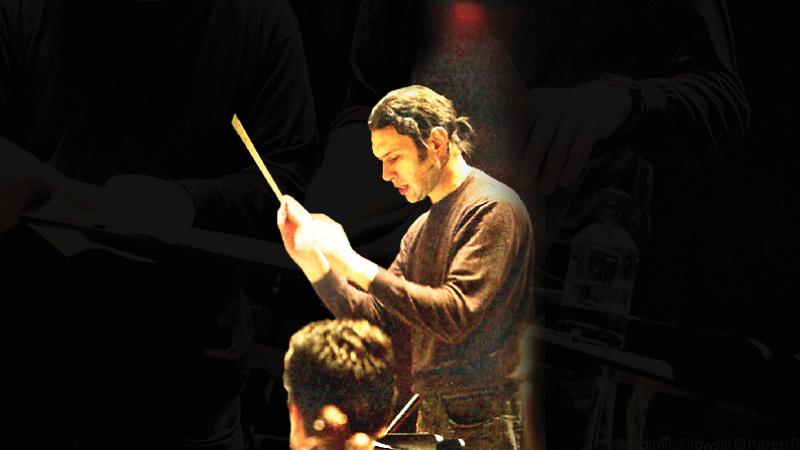
The term classical music has two meanings that describe music as ‘serious’, and the rest as pop and jazz or any sounds emerging from brass bands or electric instruments. Unlike classical, music, they all lack emotion that the former epitomizes the virtues of classical music. This can be traced to the first half of the 17th century during the era of Bach and Handel. They were followed by Haydn and Mozart not to mention their countries of origin.
Haydn’s contribution to musical history is immense and he is considered as the Father of Symphony. He had a thorough knowledge of polyphony and counterpoint and his scores were predominantly homophonic. With a perfect balance of string sound that included two violins, viola and cello, the scoring was elegant in the handling of the medium that is the quintessential classical art form.
Unquenchable spirit
Mozart followed him, and so were Beethoven and his successors. Beethoven who was considered the genius of the lot though many composers who felt daunted by his symphonic form, gave into his chamber music.
 The language of music; so emotion anal Jurowski with his lead violinist. |
His unquenchable spirit and ability for self- expression helpfully encompassed the late Classical period and early Romantics. His music is the titanic span between the two. All who followed him revere him.
Then came the new iron-string piano to become the favourite instrument of the first part of the Romantics that boiled down to the undisputed master of Romantic keyboard style, Frederic Chopin.
The list is endless until the arrival of the icon violinists who charmed the music lovers and perform big even today, around the world, which took me many times to the London Philharmonic Orchestra and Russian National Orchestra where I was bitten by the music of Shostakovic, Tchaikovsky among the Russians, but nothing would have been possible to bring them back to life if not for the iconic conductor, Vladimir Jurowski with his masterly wielding of the baton as no other conductor.
In the combined forces of these two orchestras is the climax of Jurowski’s exploration of the British and Russian composers. The result was expansive visionary, and awe-inspiringly beautiful. No doubt, he swept me off my feet.
He belongs to the whole wide world of performing arts with another iconic compatriot, Rudolf Nureyev born thirty-five years apart. Unlike Nureyev, he was born with the silver spoon in his mouth. Born in Moscow, he is the son of conductor, Michail Jurowski and grandson of Soviet film music composer, Michailovich Jurowski and became the third generation to wield the baton in his family.
Commencing his musical studies at the Moscow Conservatory, he moved over with his family including his brother Dmitri who was a conductor himself and sister Maria (pianist) to Germany where he completed his education at the music schools of Hochschule fur Musok Carl Maria von Weber Dresden and the Hochschule further and vocal coaching with Devis on Sibwlius Symphony No. 7 in 1991.
Career
 He first appeared in the international scene in 1995 at the Wexford Festival when he conducted Nikolai Rimsky- Korsakov’s opera MAY NIGHT and returned the following year for Giacome Mayerbeer’s L’etoile du nord which was recorded by Naxos Records. In April 1996 he made his debut at the Royal Opera House, Covent Garden conducting NABUCCO. I was present at this event and saw Jurowski for the first time.
He first appeared in the international scene in 1995 at the Wexford Festival when he conducted Nikolai Rimsky- Korsakov’s opera MAY NIGHT and returned the following year for Giacome Mayerbeer’s L’etoile du nord which was recorded by Naxos Records. In April 1996 he made his debut at the Royal Opera House, Covent Garden conducting NABUCCO. I was present at this event and saw Jurowski for the first time.
He was simply beyond words like a comet shooting down from somewhere. He unleashed the Russian musical tradition and since has been championed by audiences the world over thanks to the variety of riches it offers from Romantic passion of Tchaikovsky to innovative brilliance of Stravinsky and Prokofiev.
Russian national orchestra
As the head of the London Philharmonic Orchestra, he explained the significance of the Russian National Orchestra joining up as a very special highlight. The series culminate in a massive joint- force as a kind of super group when they play together that produce great orchestral genre, especially, Tchaikovsky’s 1812 Overture along with works of Shostakovich. Jurowski conducted an early Bruckner symphony and Wagner’s Romantic songs; written as the composer slipped into hopeless adoration of the German poet, Mathilde Wosendock, capturing moments of heartfelt stillness in a whirlwind musical career. A typical well thought out program of music by Jurowski performed at LPO was of contrasting powerful and gripping works so akin to Stravinsky’s masterpiece.
On and off, he also takes on Beethoven and Schoenberg. His works are limitless and repertoire magnificent. It is not easy to identity his great works because they are all great and iconic, beyond compare; like the waters that surround the ocean and clouds that float away to reveal the blue heavens. Only his music can touch them.
